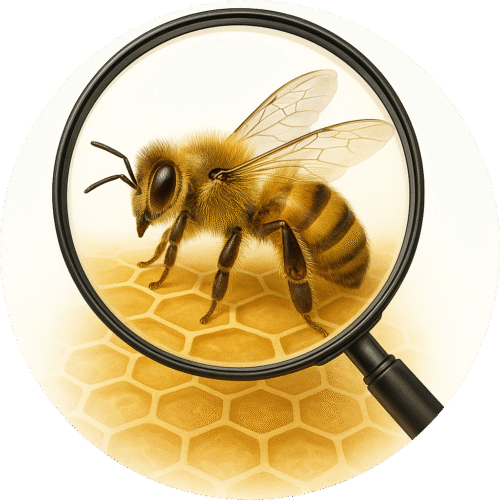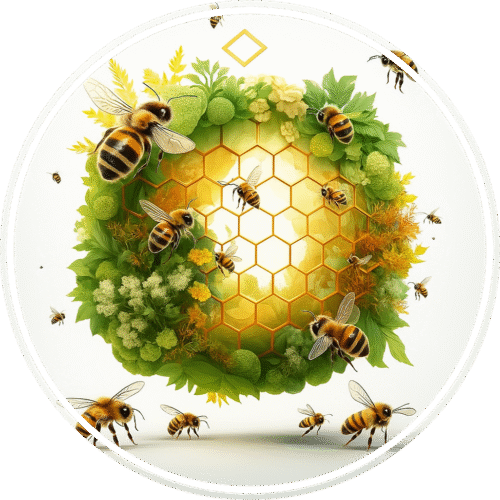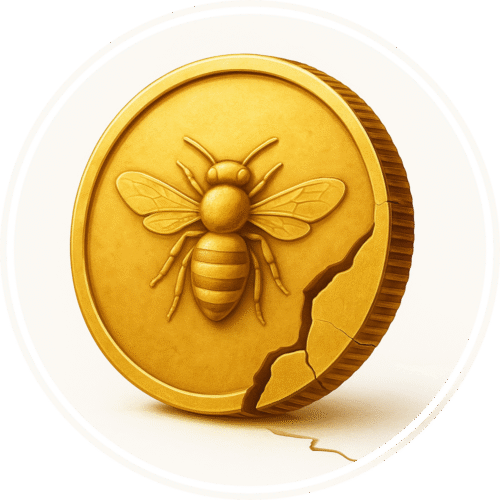The Varroa Mite Infestation
A Global Crisis Threatening Life on Earth
The Global Threat of the Varroa Mite
The varroa mite, a tiny yet devastating parasite, has emerged as a significant threat to honeybee populations worldwide, posing an existential challenge not only to beekeepers but also to life on our planet. This minuscule mite, originally from Asia, has now spread across continents, leaving a trail of destruction in its wake.
At first glance, the varroa mite may appear inconspicuous, but its impact on honeybee colonies is catastrophic. These mites feed on the bodily fluids of adult bees and their developing brood, weakening and eventually decimating entire hives. As a result, honeybee colonies suffer from weakened immune systems, impaired reproduction, and increased susceptibility to other diseases and environmental stressors.


The World Without Bees
The implications of the varroa mite infestation extend far beyond the realm of beekeeping. Honeybees play a pivotal role in pollinating a wide variety of crops, including fruits, vegetables, and nuts. Without honeybee pollination, many of our favorite foods and essential crops for human survival would vanish from our plates. The global agricultural industry heavily relies on the tireless work of honeybees, making them indispensable for food production and biodiversity preservation.
The varroa mite infestation triggers a cascade through ecosystems. Pollinators like honeybeed ensure the reproduction of countless plant that sustain other species. As bee populations decline, entire food chains destabilize - from flowers to forests, everything feels the loss.
The Human Side of the Bee Crisis
Furthermore, the consequences of varroa mite infestations touch the lives of billions of people worldwide. As food scarcity looms due to disrupted pollination, agricultural costs soar, resulting in higher prices for consumers. The economic impact is significant, affecting farmers, food industries, and consumers alike.
Moreover, the health and well-being of human populations are intricately linked to the health of the environment. Pollinators like honeybees contribute to the diversity and abundance of plant-based foods, which play a crucial role in human nutrition. A decline in pollinators may lead to a shift in dietary patterns and potential health implications.

Innovative Solutions by WarmHive for a Sustainable Future
To combat this global crisis, innovative and sustainable solutions like the WarmHive project's Varroa Mite X treatment are essential. By developing a chemical-free solution to protect honeybee colonies and ensure sustainable honey production, WarmHive aims to safeguard the vital role of honeybees in pollination, food security, and environmental balance. It is not merely a battle against a small parasite but a decisive effort to preserve life on our planet and secure a sustainable future for generations to come.
Our specialists are waiting to help you
Contact Information

Piotr Bereziewicz
Fouder and Managing Director

Check,
how we can help you!